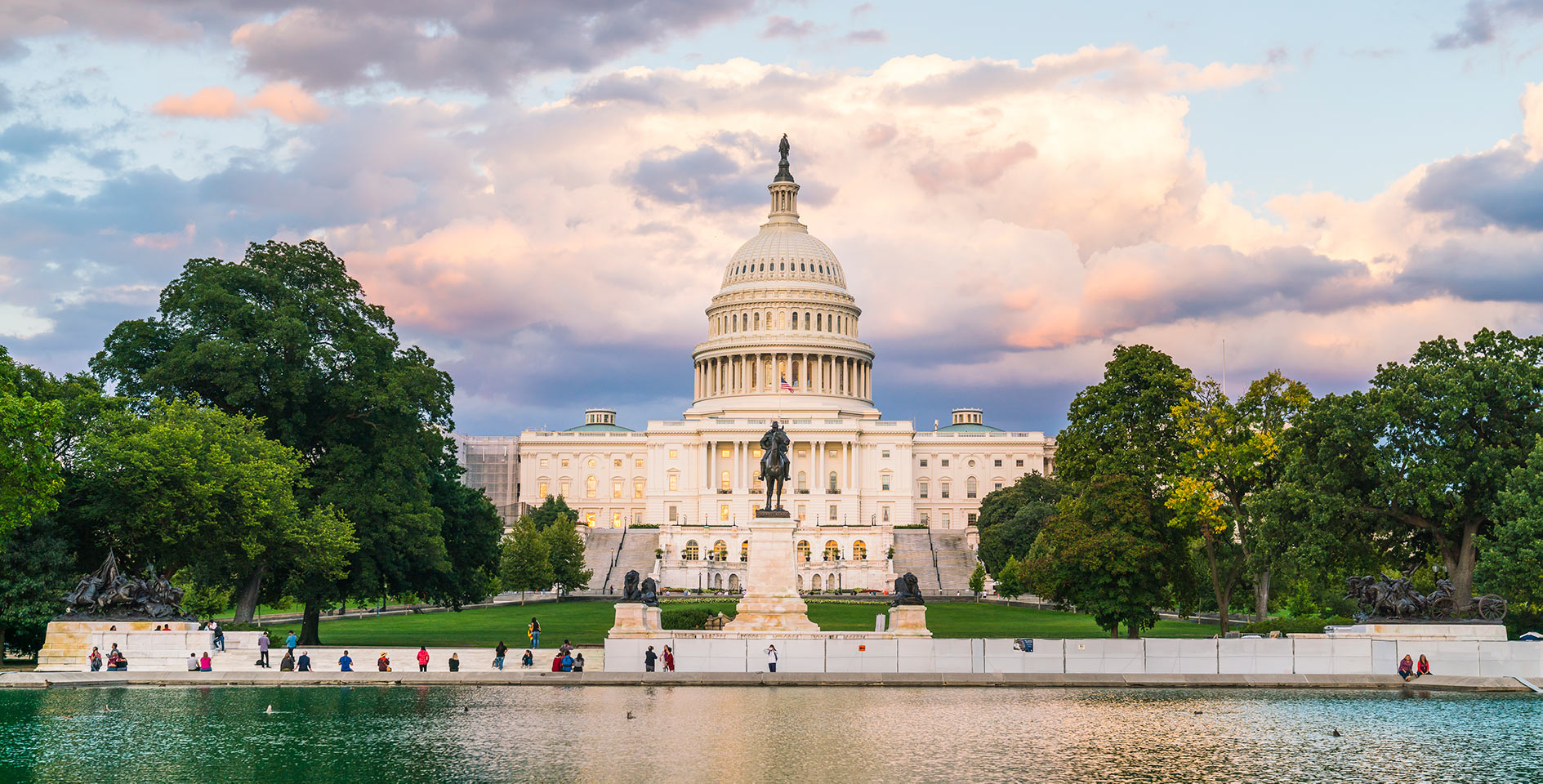Politics and ideology are forces that do not merely pertain to governance but often cast a vision about the nature of reality, individuals, and society. As such, political ideologies can have a religious power, shaping the people that adhere to them. In Political Visions and Illusions, David Koyzis examines the fundamental political ideologies of our era, unpacking and evaluating the worldview assumptions and stories they tell about public life and the direction of history. Koyzis suggests that understanding the idols of ideology is key to understanding faith and politics in our contemporary moment. The interview below further explores these ideas and how they affect our society and faith communities.
What prompted you to write Political Visions and Illusions?
Well, it was a very practical need beginning in my first year of teaching back in 1987. I was assigned to teach a course in political ideologies at a Christian university in Canada. This was before the internet, so I had to look through these orange hardbound volumes of Books in Print to find a suitable text. I couldn’t find anything that did what I thought needed to be done in such a course. So I ended up assigning a standard text but followed my own agenda. A few years later I began writing something to replace it with, and Political Visions and Illusions was the result. The first edition was published in 2003. And it ended up filling a need. It’s been used at universities throughout North America and elsewhere, and even in theological seminaries, somewhat to my surprise.
The book frames ideologies as modern manifestations of idolatry. What exactly does that mean?
An idol is something we put in the place of God. We take something out of the creation and make it a surrogate god, expecting that it will somehow save us. Of course it can’t do that. But if we reject the one true God who has revealed himself uniquely in Jesus Christ, we will inevitably turn to others. In this respect, there is no such thing as a person lacking faith. We inevitably put our faith in something, and that something will not satisfy.
As for ideologies, they are rooted in a kind of secular faith. Liberalism, for example, rests on a faith in the liberty of the individual. Nationalism makes a god of the nation. Democratism places its faith in the popular will. Socialism makes a god of the economic class or, in the case of Marxism, in a providential history based on concrete material forces. Liberalism is not wrong to esteem individual liberty, of course. The fact that ancient peoples worshipped idols made of wood and stone does not make the created materials of wood and stone evil. Individual liberty is a very good thing, but it can become an idol when every other consideration, especially anything related to community, is made subservient to it.
How does ideology relate to the Bible’s redemptive message?
Actually this is one of the ways that the second edition, published in 2019, differs from the first. In the first edition I treated ideologies as manifestations of idolatry, but in the second I trace the false redemptive narratives underpinning them. The biblical story begins with creation, taking us through the fall into sin, redemption in Jesus Christ, to the final consummation of God’s kingdom. The ideologies have similar salvation stories that take us through historical stages leading to something much better than the present, for example, Marx’s classless society to be ushered in by a messianic proletariat, or industrial working class. The liberal story promises salvation when we have expanded the scope of individual choice to the maximum extent. Nationalism sees a redemptive struggle liberating a particular nation from oppression by some external force. It is often said the Marxism is a Christian heresy. But each of the ideologies in its own way represents an effort to achieve salvation on human terms. As such it is parasitical on the biblical story.
In your view, which ideological idols are most tempting to Christians in North America?
I’m inclined to think that the liberated individual is the most alluring of these idols today. This has underpinned the sexual revolution over the past six decades, as well as a consumer-oriented libertarianism focusing heavily on the free market. But of course I cannot fail to mention nationalism. Even as ostensibly liberated individuals, we want to belong to something larger than ourselves. And nation often serves this purpose, at least for a time.
2020 was one of the more politically tumultuous years in recent history. How does your book speak into the political developments of 2020? If you were writing the book today, is there anything you would add now?
Well, the second edition was just published in 2019, so it’s not quite two years since it came out. However, the changes I made in the new edition reflect developments in liberalism since the turn of the millennium, the somewhat more positive attitude to socialism among American young people, and the increasing influence of what some have labelled cultural Marxism. The year 2020 saw some of the negative elements I foresaw in 2003 coming together in the bitterly contested presidential election, culminating in the January 2021 uprising at the Capitol. A society that pushes individual autonomy and personal authenticity for their own sake, especially at the expense of ordinary communal standards, should not be surprised when the glue that holds a people together begins to weaken.
For the church, what is the difference between idolizing ideology and healthy Christian civic engagement?
Oh, there’s a huge difference. Healthy civic engagement requires that we have a commitment to the body politic of which we are citizens. It requires a commitment to seeing public justice done to the individuals and communities within its jurisdiction. It does not require that we put aside our partisan commitments and our commitment to the truth, but it does require that we retain a certain modesty over our understanding of the truth and of what it entails. If we are committed to a certain faux-redemptive story and are unwilling to budge from it, we risk the health of the entire body politic. Proper civic engagement requires that we maintain our loyalties to other communities of which we are part, including families, neighborhoods, church congregations, labor unions, workplace communities, and so forth. We ought not to seek our ultimate identity in our citizenship, and if we do, we have effectively made it an idol.
What is societal pluriformity? How does the recognition of societal pluriformity benefit governance and society?
Societal pluriformity is an expression I use to describe a society in which human activities are dispersed into a variety of communities of different kinds. Schools educate children and youth. Business enterprises use material and other resources and enhance their value for the mutual benefit of investors and users. Labor unions protect the rights of workers in the workplace. Marriages bind couples together for purposes of mutual companionship and producing the next generation. Families provide a stable context for raising children. Churches properly assemble members for the purpose of worshipping God. None of these institutions and communities should usurp the tasks of the others. A pluriform society provides the best context in which to use the gifts God has given us for a variety of purposes.
How should the church approach an increasingly secular public square?
It depends on what you mean by church. Abraham Kuyper, the Dutch Christian statesman who served as prime minister more than a century ago, made a crucial distinction between the church as the body of Christ and the church as a specific differentiated institution. If we define it as the body of Christ, of which all believers are part, then we simply live out our lives in every setting recognizing that our ultimate allegiance is to God’s kingdom. This may call for organizing politically to see that justice is done in public life. Kuyper founded a Christian political party in the Netherlands in the late 19th century. That may not be possible in North America, and many Christians hold that it would not be desirable either. Yet we ought not be content to live as mere individuals in the face of the very ideological visions I analyze in my book. We need to be a communal witness to God’s grace throughout the whole of life.
How can pastors better equip those they are called to shepherd to navigate political and civic engagement? How can pastors discern when to speak out about political issues?
This is where the church as institution enters the picture. In the second edition, I have appended a “Concluding Ecclesiological Postscript” where I discuss the role of church congregations, denominations, and ministers of the gospel. I do not think it’s appropriate, for example, for an ecclesiastical assembly to pronounce on a $15-per-hour minimum wage or a two-state solution to the Israel/Palestine issue. However, the church definitely ought to be instructing parishioners on a biblical understanding of justice and its larger implications for life in community.
How do you suggest believers approach public justice? In your view, what is the source of our disagreements about what justice requires?
There are two sources of our disagreements. First, we may disagree on basic principles of justice, in which case it may be that we have been negatively influenced by the redemptive stories told by the secular ideologies I treat in my book. Perhaps we have become Christian socialists, or Christian nationalists, or some such. A major reason for my writing this book is to move believers into examining themselves to see whether they are in fact accepting an unbiblical redemptive narrative and whether this might be adversely affecting their approach to political life.
But second, even if we were all agreed on first principles, we would still differ on how they should be applied in particular circumstances. In other words, we would disagree on prudential grounds on the wisdom of this or that specific policy. We needn’t regret such disagreements, because debate over such matters is crucial to the policy process. If everyone simply accepted a single policy proposal without question, there is a good chance it would go badly.
I might end with a caution. Just because we ourselves are Christian believers does not make us all-wise and perfectly in tune with a biblical understanding of justice. Humility is not often regarded as a political virtue, and many of our political leaders are not generally noted for possessing it. Yet humility is needed if people are going to cooperate for political purposes and to see justice done thereby.
You can order Political Visions and Illusions here.
Photo attribution: Joecho-16 | Getty Images Plus









